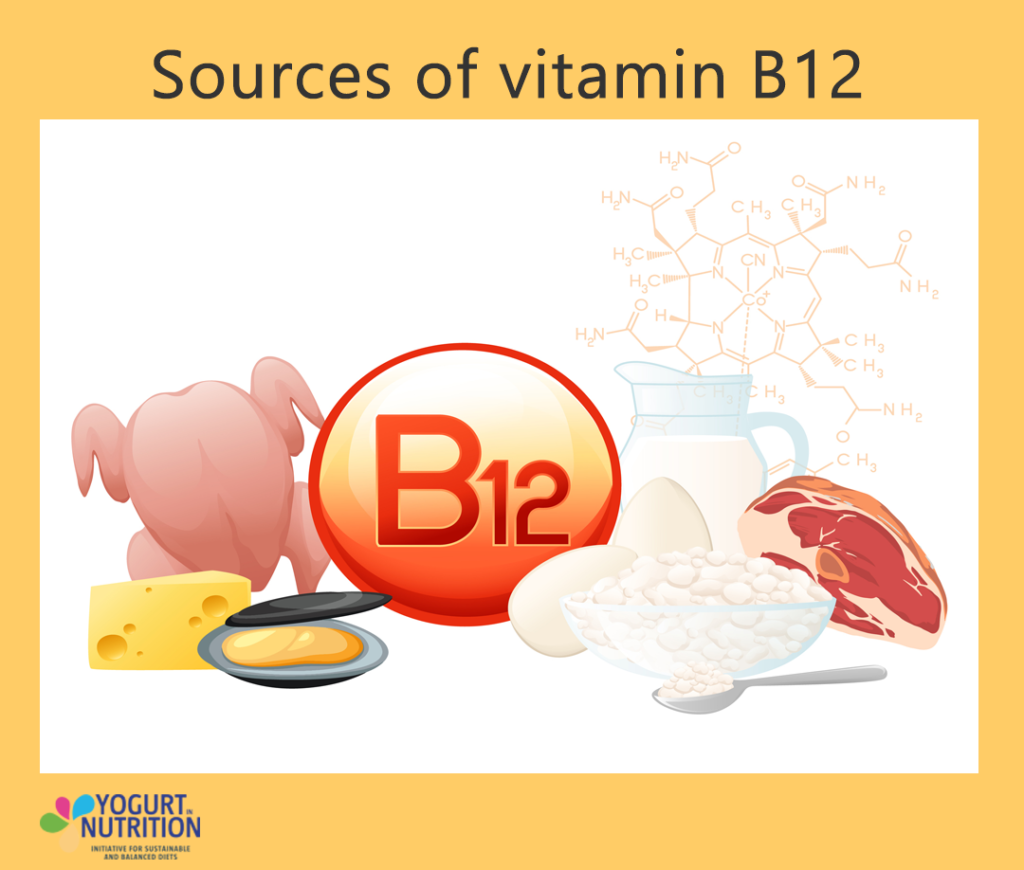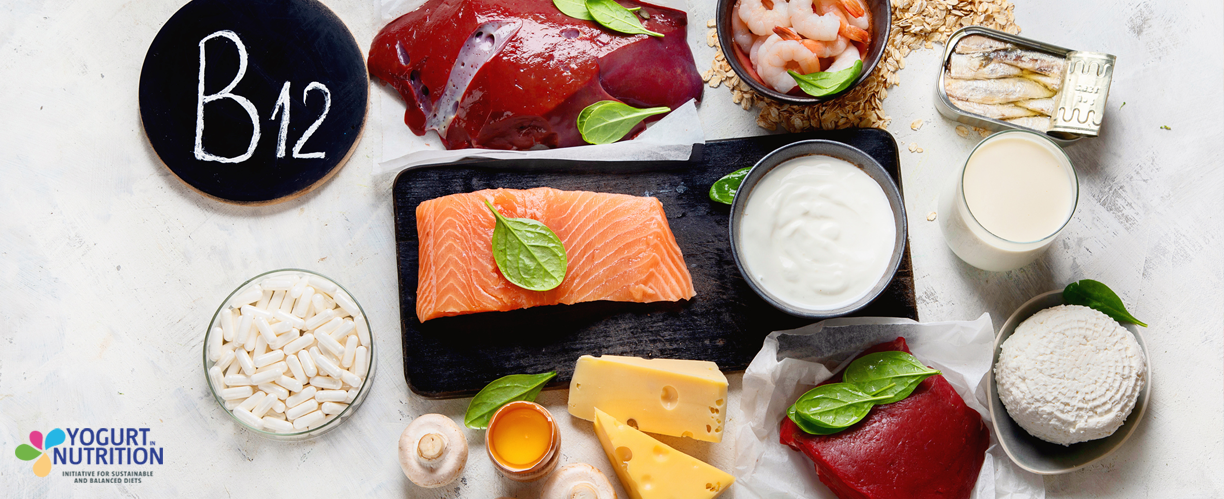Cobalamin known as vitamin B12 is essential to health. Let’s focus on its effects and its presence in the diet.
What is vitamin B12?
Vitamin B12 is a water-soluble vitamin part of the vitamin B complex. It is essential for the:
- function of the nervous system,
- red blood cell formation
- DNA synthesis
It is a cofactor of two specific enzymes:
- Methionine synthase which involved in the conversion of methionine, involved in DNA, RNA, proteins and lipids formation.
- L-methyl malonyl-CoA mutase, involved in the metabolism of macronutrients.
Dietary recommendations
The dietary recommendation for adults is 4µg per day, it increases to 4.5µg during pregnancy and to 5µg during lactation. No safe upper limit has been determined as B12 has a low potential to become toxic since the body does not absorb or store excessive amounts.
When eating a balanced diet, the body is able to store 1000 to 2000 times more B12 than needed in a day which explains why it might take a while before the deficiency becomes symptomatic.
Symptoms of a deficiency can include megaloblastic anaemia (large abnormally nucleated red blood cells), palpitations, pale skin, dementia, weight loss, infertility, and neurological changes such as numbness and tingling in hands and feet. A deficiency during pregnancy and breastfeeding can lead to neural tube defects, developmental delays, failure to thrive and anaemia in the infant.
Deficiency remains rare in developed countries; it is most commonly caused by diet deficiency. People at risk of B12 inadequacy are mainly:
- older adults,
- vegetarians who consume little animal products (eggs, dairy)
- vegans.
- people with pernicious anaemia,
- people with GI disorders, GI surgery which removes part of the stomach,
Sources of vitamin B12
Vitamin B12 is only found in animal sources such as fish, meat, poultry, eggs, and dairy.
Plant foods do not contain B12 naturally, but they can be fortified. For example: breakfast cereal, nutritional yeast, plant-based milk or yogurt alternatives such as fortified soy milk.
People who follow a vegan diet or a vegetarian diet with little to no dairy products should be mindful of their B12 intake and supplement if they do not consume enough fortified plant foods.

Vitamin B12 in dairy
Dairy is a great source of B12. People who consume dairy products are more likely to have adequate B12 levels. Furthermore, people who consume yogurt have a 7.1% higher B12 consumption than those who do not.
Dairy intake recommendations vary across countries. In most cases, it is recommended to consume 2-3 portions of dairy per day. This can help achieve about half of the daily recommended intake of B12.



